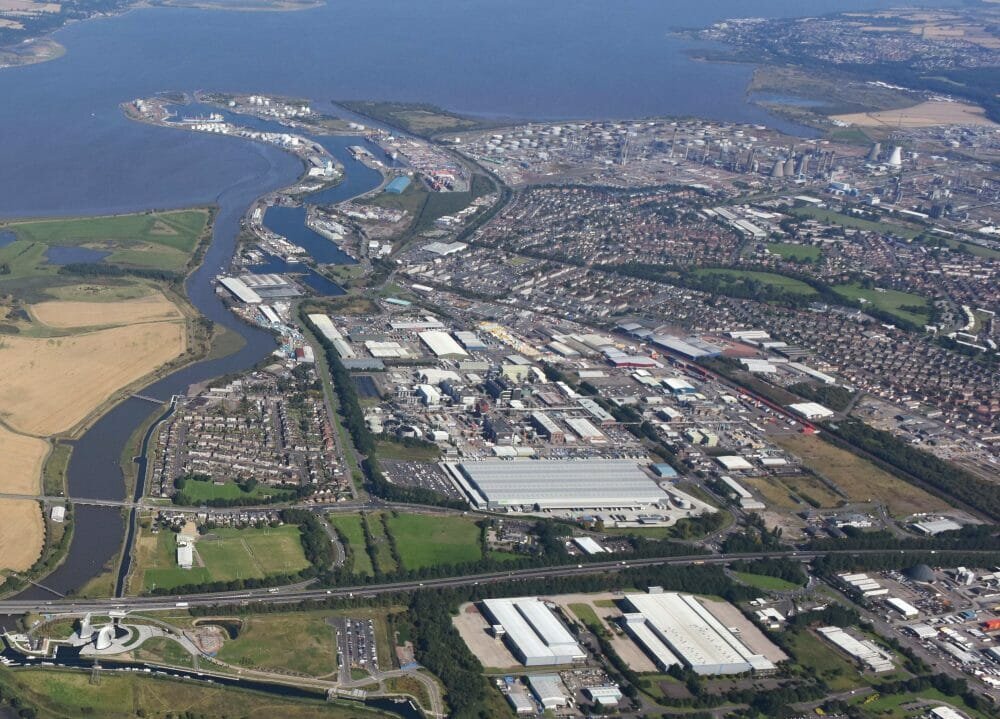Businesses could soon better understand their impact on the environment, minimise environmental risk and more effectively monitor waste, because of a research and development (R&D) project underway at Grangemouth, one of the UK’s largest and most important industrial sites.
The collaborative pilot project – involving environmental analytics software start-up, Topolytics; chemical manufacturer, CalaChem; air quality monitoring equipment provider, Air Monitors Ltd; Falkirk Council; the Scottish Government; the University of St Andrews; and CENSIS, the Scottish Innovation Centre for Sensors and Imaging Systems – aims to enhance decision-making by allowing users to better understand, and have more confidence in, data produced by environmental sensors.
Current sensor systems will detect when there is an issue to be addressed at a particular location; however, they can generate incorrect readings. This may be due to something as innocuous as a bird standing over a sensor or a break in the clouds causing a sudden rise in temperature.
In this pilot project, Topolytics is incorporating statistical models developed by the University of St Andrews into its software. The sensors at Grangemouth are designed to measure sulphate emissions, carbon dioxide levels, wind speed, precipitation, humidity and other meteorological conditions, with the resulting data feeding into the models and then through Topolytics’s dashboard. The aim of the pilot is to enhance Topolytics’s capabilities and improve understanding of the behaviour of environmental monitoring sensors.
Professor Simon Dobson, Director of Research at the University of St Andrews School of Computer Science, explained: “A lot of the data produced by sensors is noise – it’s not always clear how that data should be filtered through into decision-making, which can be tricky in situations where decisive action is required quickly.
“What we’re doing will cut through all that noise and help decision-makers see what they actually need to, if anything at all. The statistical modelling we’re using will be able to identify and eliminate many of the false positives that crop up so frequently – particularly in highly-regulated markets such as petrochemicals, which require a great deal of monitoring.”
The pilot project feeds into Topolytics’s ongoing product development, which sees it measure and monitor a growing range of environmental data, including solid waste and recycling, water, effluent and air emissions. The data may come from fixed and mobile sensors/meters, airborne scanners and weighbridges.
With the global market for environmental monitoring and sensing expected to be worth £15 billion by 2020, Topolytics sees great potential for its services in the petrochemical and primary resources sectors; in addition to the manufacturing and commercial property companies with which it already works.






